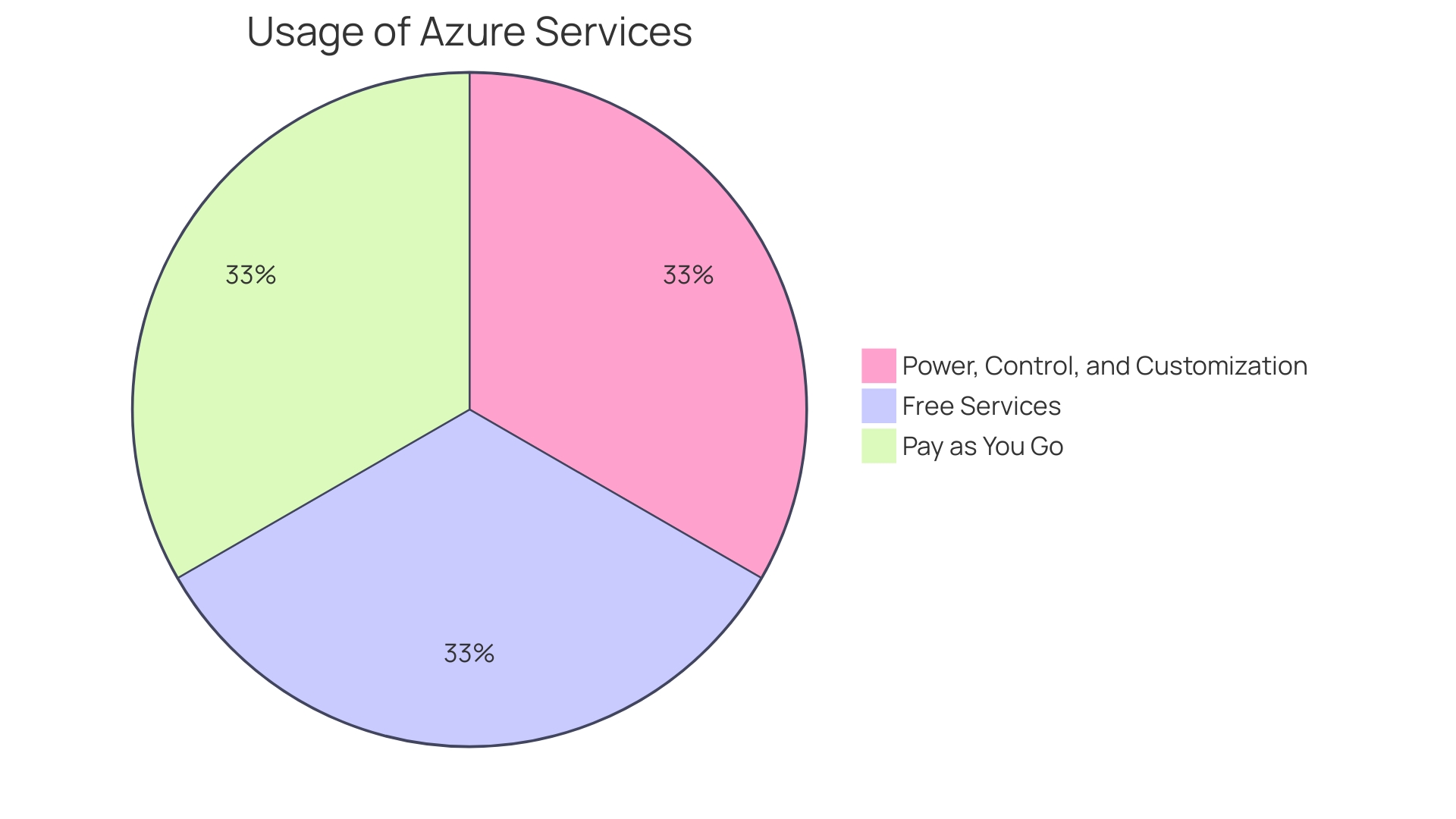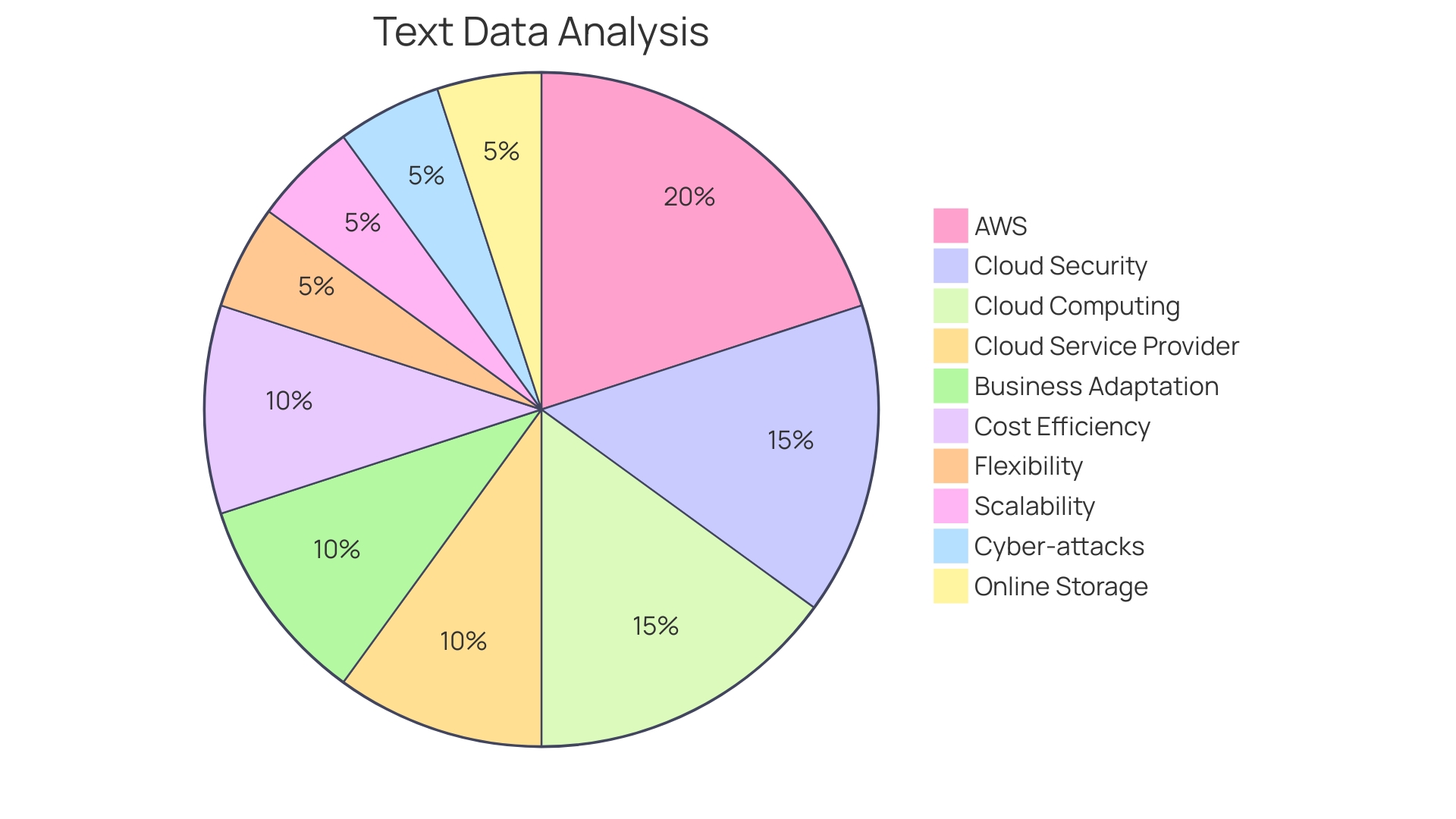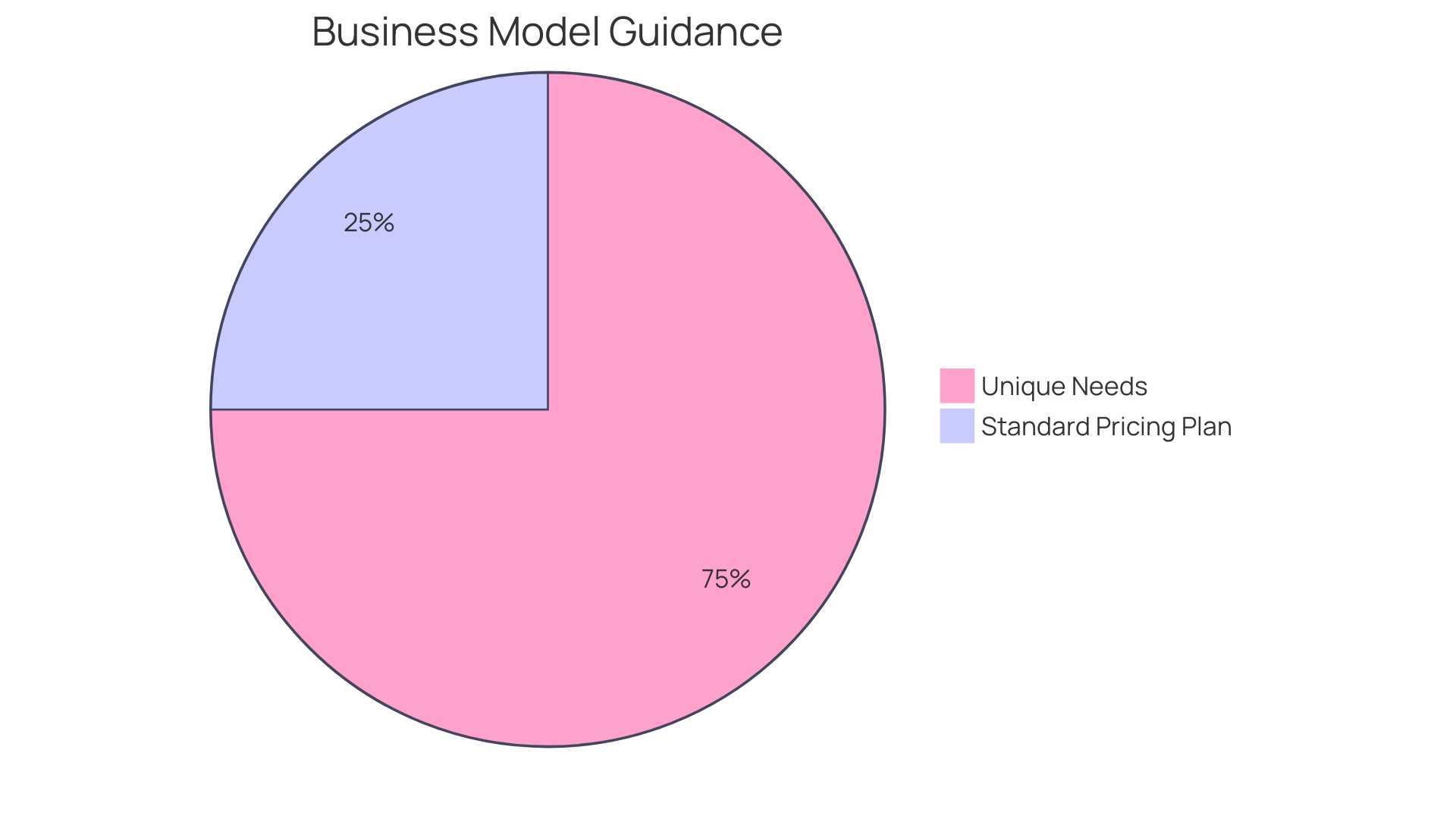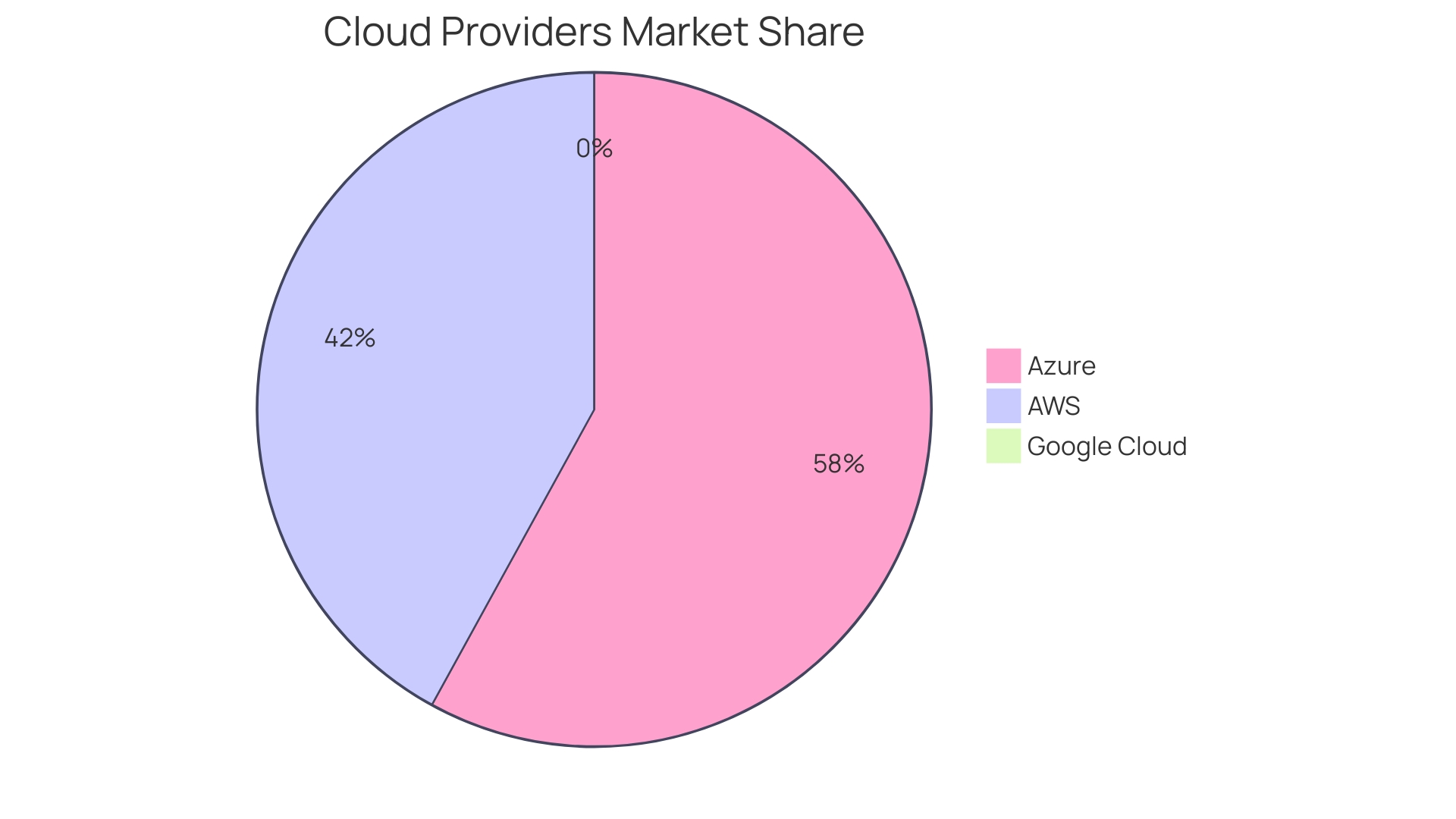Introduction
Cloud computing has revolutionized the way businesses operate, offering flexible and scalable solutions to optimize operations and drive innovation. Two prominent players in this space are Amazon Web Services (AWS) and Microsoft Azure. In this article, we will provide an overview of both platforms, highlighting their key features, service offerings, pricing models, and considerations for businesses.
Whether you are an organization looking to migrate to the cloud or seeking to enhance your existing cloud infrastructure, understanding the nuances of AWS and Azure will empower you to make informed decisions and propel your business forward in the digital landscape.
Overview of Amazon Web Services (AWS)
Amazon Web Services (AWS) stands at the forefront of cloud computing, offering a suite of comprehensive services that include computing power, storage options, and networking capabilities through its Elastic Compute Cloud (EC2) and other resources. AWS empowers businesses to innovate swiftly and scale their operations with ease, thanks to its pay-as-you-go model that avoids upfront investments or long-term commitments.
Organizations across various industries leverage AWS's cloud platform to optimize their IT infrastructure. For instance, Vertex Pharmaceuticals uses AWS's machine learning capabilities to accelerate drug discovery by analyzing vast datasets and microscope images, enhancing the precision and speed of their research. Similarly, Northwestern University Libraries (NULL) innovated their digital collections suite by integrating the IIIF standard with AWS, greatly improving the accessibility and analysis of digitized resources globally.
In the realm of online gaming, Chess.com utilizes AWS to manage over ten million daily chess games, supporting a global community of over 150 million users. AWS's robust infrastructure enables Chess.com to deliver a seamless, stable experience and foster the growth of the game internationally.
Notably, at AWS re: Invent events, visitors can engage with interactive experiences, such as sports simulators, and delve into sessions that showcase AWS partnerships, new services, and tech trends, further demonstrating the platform's versatility and outreach. Amazon Vice President and CTO Werner Vogels' keynotes at these events highlight the evolving nature of AWS, emphasizing its role in shaping future technological landscapes.
AWS's global reach is exemplified by the analogy of Australia's diverse animal kingdom, where each state and territory offers unique experiences. Similarly, AWS regions provide tailored services to meet the specific needs of businesses worldwide, establishing AWS as a dynamic and indispensable cloud platform.

Overview of Microsoft Azure
Microsoft Azure is not just a cloud computing service, but a robust ecosystem designed to enable businesses to achieve more with an extensive array of services and tools. Known for its seamless integration with the Microsoft suite, Azure's capabilities extend to virtual machines, analytics, storage, and networking. Leveraging the power of Microsoft-managed data centers, Azure ensures that organizational applications and services are built, deployed, and managed efficiently.
Its synergy with existing Microsoft products enhances user experience and productivity by providing a familiar environment for Windows users.
For organizations venturing into the cloud, such as IFCO, Azure's partner network proves invaluable. With Rackspace Technology's partnership, IFCO harnessed Azure's capabilities to accommodate its small IT department, benefiting from Rackspace's vast experience in cloud transitions. This collaboration underscores Azure's commitment to customer-centric solutions and its ability to adapt and cater to diverse business needs.
Azure's scalability and flexibility are key differentiators in the cloud market. Its pay-as-you-go model allows businesses to scale resources according to demand, ensuring cost-effective solutions. For startups like TatvaCare, Azure's advanced services like electronic medical records and digital therapeutics applications are pivotal in their mission to provide hyper-personalized care solutions.
Despite recent workforce adjustments in the Azure cloud division, Microsoft's dedication to investing in critical areas for long-term success remains unwavering. These strategic moves reflect Azure's dynamic approach to evolving business and customer priorities, reinforcing its position as a leader in the cloud industry.

Key Differences Between AWS and Azure
Comparing AWS and Azure reveals distinct differences that can influence an organization's choice of cloud computing platform. AWS leans heavily on Linux-based virtual machines, catering to a diverse range of services, which has propelled it to a commanding lead in market share. Azure, on the other hand, provides a hybrid environment that supports both Windows and Linux-based systems, and is highly regarded for its seamless integration with Microsoft's suite of tools.
The decision between AWS and Azure hinges on an organization's unique requirements, with each platform offering its own set of advantages. AWS's extensive service offerings and mature ecosystem make it an attractive option for businesses looking for a broad selection of tools and services. Azure's strong ties with Microsoft services offer a compelling choice for organizations entrenched in Microsoft's ecosystem, seeking a cloud solution that aligns closely with their existing infrastructure.

Service Offerings Comparison
The strategic selection of a cloud platform is pivotal for businesses seeking to optimize their operations and harness the power of modern technology. Amazon Web Services (AWS) and Microsoft Azure are at the forefront of this digital landscape, offering a plethora of services tailored to varying business needs. AWS is renowned for its extensive array of offerings, from computing power and storage solutions to advanced analytics and machine learning tools.
Azure, while also providing a robust suite of services, distinguishes itself with seamless integration capabilities with Microsoft's suite of tools, catering particularly to organizations already invested in Microsoft's ecosystem.
Both AWS and Azure present a solid foundation of core services, yet AWS is often recognized for its broader range of specialized services, which has been instrumental in its adoption across diverse industries. For example, AWS has played a crucial role in the development of innovative applications, such as a new video accessibility plugin for the WordPress community, driven by the Ford Foundation's mission to combat inequality. This initiative underscores the adaptability of AWS to support a wide range of projects and organizational objectives.
Azure's strengths are exemplified through its strategic partnerships, such as the 10-year collaboration with Vodafone, aimed at revolutionizing customer experiences through generative AI, digital services, and cloud integration. Furthermore, Azure's Active Directory (AD), with its comprehensive identity and access management features, stands as a testament to the focused security and governance solutions Microsoft has developed to protect and empower businesses.
In terms of security, the evolution from basic firewalls to sophisticated, layered defense systems is a testament to the commitment of both platforms to safeguard client data against the increasing threat of cyber-attacks. The importance of robust security measures cannot be overstated, as cloud platforms have become integral to the operations of businesses worldwide.
Organizations must delve into the specific services each platform offers, evaluating them against their unique business requirements and objectives. The decision between AWS and Azure is not merely about the number of services but about finding the right fit for the organization's technological trajectory and strategic vision.

Pricing Models and Cost Considerations
When assessing AWS and Azure, pricing remains a pivotal aspect for organizations to scrutinize. AWS and Azure present a suite of pricing arrangements like pay-as-you-go, reserved, and spot instances, catering to diverse business needs. AWS's pricing is notably granular, offering cost optimization finely tuned to specific usage patterns, which has become essential as the complexity and frequency of cyber-attacks have increased, necessitating sophisticated security measures that can also influence costs.
On the flip side, Azure provides bundled packages, which can be particularly advantageous for those with existing Microsoft licenses.
The decision between the two should hinge on a thorough examination of anticipated usage and organizational demands. For instance, AWS's affordability and flexibility have made it a preferred platform for businesses needing to scale at their own pace. Azure, meanwhile, has demonstrated cost-effectiveness in scenarios such as containerized data processing solutions, where precise budgeting and security are paramount.
Recent industry observations indicate that while AWS has introduced new charges, such as for IPv4 addresses, Azure has seen a reduction in costs, highlighting the dynamic nature of cloud service pricing.
In the domain of cloud computing, the ongoing debate of whether to buy services or build in-house solutions is influenced by these pricing strategies. Mature development teams might favor building solutions if it does not incur excessive time and effort, whereas many organizations may opt for purchasing services to focus on their core business objectives. The choice is further complicated by factors such as the need to run legacy applications, regulatory requirements, and data residency considerations, which might make on-premise solutions more suitable for some organizations.
Ultimately, the selection of AWS or Azure should align with the organization's strategic goals, taking into account the total cost of ownership, the scale of operations, and the specific cloud capabilities required. It is crucial for businesses to remain agile and informed in an evolving cloud marketplace, ensuring that their technology investments yield the desired outcomes in a secure and cost-efficient manner.

Conclusion
In conclusion, both Amazon Web Services (AWS) and Microsoft Azure offer comprehensive cloud computing solutions that empower businesses to optimize operations and drive innovation. AWS stands out with its extensive range of specialized services and global reach, while Azure excels in seamless integration with the Microsoft suite and customer-centric solutions.
The decision between AWS and Azure depends on an organization's unique requirements and existing infrastructure. AWS's adaptability has been instrumental in supporting diverse projects, while Azure's strategic partnerships and comprehensive identity and access management features showcase its strengths.
Pricing is a crucial consideration, with AWS offering granular pricing arrangements and Azure providing bundled packages advantageous for those with existing Microsoft licenses. Organizations must thoroughly evaluate their anticipated usage and demands to make an informed decision based on affordability, flexibility, and cost-effectiveness.
Understanding the nuances of AWS and Azure is essential for organizations seeking to migrate to the cloud or enhance their existing infrastructure. By aligning the choice of platform with strategic goals and considering factors such as total cost of ownership and specific cloud capabilities required, businesses can make informed decisions that ensure technology investments yield desired outcomes in a secure and cost-efficient manner.




